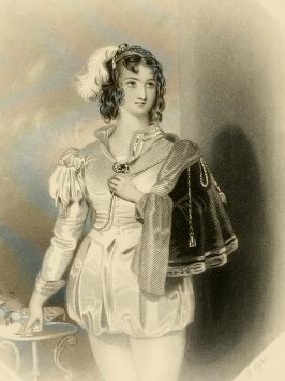| directory |
| home | contact |
|
|||||||||||||||
| search | |||||||||||||||
The Shakespeare Sisterhood: ViolaViola, without possessing any of those brilliant qualities that compel our admiration in Portia, Rosalind, or Beatrice, endears herself to us by the ingenuousness, modesty, and tenderness of her character. Like Rosalind, Viola disguises herself as a page; but instead of assuming that "swashing and martial outside" which Rosalind affects, as part of her masculine attire, she is most discreetly disposed, permitting herself no word or gesture inconsistent with the nicest propriety; she changes nothing but her dress -- she is Viola throughout. Each is in daily [contact] with the man she loves. With Orlando, Rosalind is saucy and coquettish. Viola manifests her self-sacrificing devotion to Orsino, by becoming his love-herald to the proud Olivia -- wooing for her master from another the bliss which she longed to bestow only through herself.Like Rosalind again, Viola is beloved by a woman; but the Countess Olivia differs as widely from the capricious shepherdess, Phebe, as the treatment which their infatuations severally receive: Rosalind mocks, and plays with, Phebe's preference, even while she repulses it; Viola's feminine reserve is shocked at the unwooed confession of Olivia's love. Yet how full of tender pity are her words, when first she suspects the hapless truth: What means this lady? How to cite this article:___________ Related Articles
|

|
©1999-2021 Shakespeare Online. All Rights Reserved.